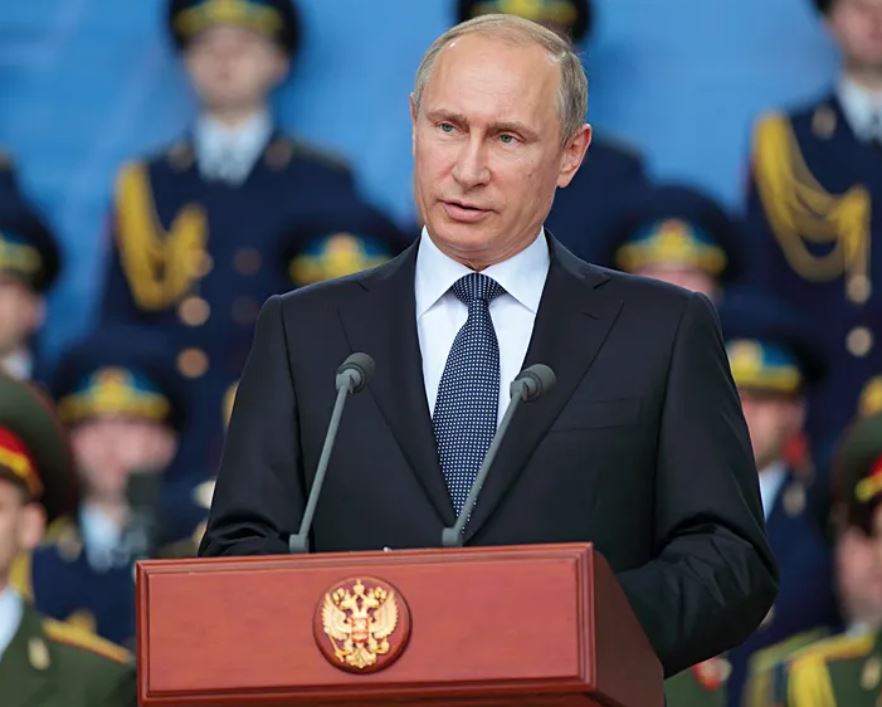In a striking pronouncement, Russian President Vladimir Putin has designated the Taliban as pivotal allies in the global fight against terrorism. Despite the Taliban’s status as a banned organization in Russia, Putin’s remarks underscore the complex dynamics of international relations and counterterrorism efforts.
Reinventing Alliances
Addressing the media after the Shanghai Cooperation Organisation (SCO) summit in Astana, Kazakhstan, Putin highlighted the Taliban’s control over Afghanistan as a strategic advantage in combating terrorism. He emphasized that any governing authority would naturally seek stability within its realm, positioning the Taliban as de facto partners in maintaining regional security.
Historical Context and Evolving Relations
Moscow’s intricate relationship with the Taliban is rooted in years of cautious engagement. Although the Taliban have been outlawed in Russia since 2003, recent geopolitical shifts have prompted a reevaluation of this stance. Putin’s call for strengthening ties with the Taliban government reflects a pragmatic approach to counterterrorism, particularly given the Taliban’s ongoing conflict with the jihadist faction Islamic State Khorasan (IS-K).
Counterterrorism Synergy
Putin’s assertion gains credence in light of the Taliban’s relentless campaign against IS-K, a rival faction responsible for heinous acts of terror. The Taliban’s efforts to curb IS-K’s influence align with Russia’s broader objective of regional stability. Notably, IS-K orchestrated a devastating attack in March, resulting in over 140 casualties at a Moscow concert hall, marking one of the deadliest terrorist incidents in Russia’s recent history.
A Fragile Stability
However, Putin’s endorsement of the Taliban comes with caveats. He acknowledged the Taliban’s assumption of certain responsibilities while highlighting persistent issues that warrant continuous scrutiny from both Afghanistan and the international community. The Taliban’s imposition of a draconian interpretation of Islamic law, which has effectively marginalized women from public life, remains a contentious aspect of their governance.
Diplomatic Maneuvering
Since the U.S. withdrawal from Afghanistan in 2021, Russia has sought to recalibrate its diplomatic relations with the nation. The legacy of the Soviet invasion in the 1980s casts a long shadow over contemporary interactions. Despite warming relations, Russia has stopped short of officially recognizing the Taliban government, referred to as the “Islamic Emirate of Afghanistan.”
Conclusion
Putin’s recognition of the Taliban as crucial allies in counterterrorism underscores the complexities of modern geopolitics. While pragmatic alliances emerge in the face of shared threats, the international community must navigate the delicate balance between cooperation and ethical considerations. As Afghanistan grapples with internal challenges, the global discourse on counterterrorism continues to evolve.
Key Learning Points
| Key Learning Points |
|---|
| Taliban’s role as de facto allies in counterterrorism efforts |
| Historical context of Russia-Taliban relations |
| Impact of Taliban’s conflict with IS-K on regional stability |
| Ethical and governance challenges under Taliban rule |
| Russia’s diplomatic recalibration post-U.S. withdrawal |
Soumya Smruti Sahoo is a seasoned journalist with extensive experience in both international and Indian news writing. With a sharp analytical mind and a dedication to uncovering the truth, Soumya has built a reputation for delivering in-depth, well-researched articles that provide readers with a clear understanding of complex global and domestic issues. Her work reflects a deep commitment to journalistic integrity, making her a trusted source for accurate and insightful news coverage.



